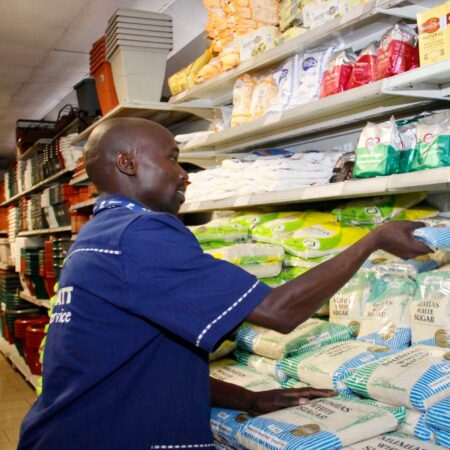- According to an Economist Intelligence Unit (EIU) report, Kenya is among the best places for doing business globally.
- Venezuela has been ranked as the worst country in which to do business.
- Qatar has implemented a $220 billion investment program over the past decade, mainly focused on infrastructure.
Kenya has been ranked among the places with a weak business environment. Still, it has the potential for improvement over the next five years. According to a report by the Economist Intelligence Unit (EIU), it is among the best business places, a global business intelligence & market insights company.
Kenya and Angola were the only African countries on the list of prospects. The report ranked Kenya at position six among the most improving geographies in the business environment between 2019 and 2023, mainly driven by the massive investments in infrastructure during the period.
“Kenya passed a Privatisation Act in 2023, which will help to trim the state’s excessively large economic footprint while boosting the private sector,” reads the report in part.
Last year, the Kenyan government implemented radical fiscal policy changes on taxation, public spending, government operations, and public debt management.
The radical changes were meant to narrow the fiscal deficit under pressure due to low tax yields, rising debt service obligations, and spending pressures.
Following the reforms, the World Bank had projected Kenya’s economy will grow at a faster rate of 5.2 per cent in 2024, boosted by increased private sector investment as the government reduces its borrowing from the domestic credit market.
The EIU index measures the attractiveness of the business environment in 82 countries and territories, examining 91 indicators spread across 11 different categories.
The categories include the political environment, the macroeconomic environment, market opportunities, policy towards free enterprise and competition, foreign investment, foreign trade and exchange controls, taxes, financing, the labour market, infrastructure, and technological readiness.
Kenya’s competitor Angola, on the other hand, is close to the bottom of the rankings, and the report says it is arguably a better place to do business than it was five years ago.
Read also: Kenya’s business conditions improved in February, but the future remains uncertain.
The best places for doing business
The latest business environment index revealed that Singapore, Denmark, and the US will be the three geographies with the best business environment over the next five years. Several West European economies, alongside Canada, Hong Kong, and New Zealand, make up the remaining ten best places in the world to do business.
“These are all advanced economies and long-standing strong performers in our index, so tend to be safe bets for investments,” the report reads in part.
However, headline and per capita GDP growth rates are likely relatively stable and slow. According to the report, to identify which economies may be best placed for an acceleration in per-head GDP and investment growth, the ranking needs to look further down.
These are not the same economies that will see the fastest real GDP growth in 2024-28—although Qatar and India will grow very strongly—instead, they are places where there is an expected significant policy improvement, infrastructure investment, or growth in market opportunities.
In contrast, Venezuela has been ranked the worst country to do business, and it is projected to remain so despite a slight improvement after its painful economic collapse.
Big improvers in the index
Qatar has implemented a $220 billion investment programme over the past decade, mainly on infrastructure.
Its business environment has benefited from the expansion of Hamad International Airport’s road network and tourism infrastructure. Lithuania has long been open to trade and investment. Still, significant tax reform will soon make it more attractive by extending corporate tax relief and shifting the tax burden away from labour.
Greece sees the most significant improvement in the business environment in our index over this period. This reflects the impact of a pro-business government led by the New Democracy party, now in its second term, that has undertaken reforms, cut taxes and boosted business confidence.
Geographies expect a strong improvement
India is the only single-country market offering a potential scale comparable to China’s. India’s youthful demographic profile promises both strong demand and good labour availability.
Alongside solid economic fundamentals, digital infrastructure and favourable demographics, more policy support is being introduced to attract manufacturing investment.
Serbia, meanwhile, while much smaller, has seen a virtuous circle from its openness to FDI in the past, which has driven growth and attracted further investment, including in higher-value-added sectors. A recent strengthening of macroeconomic policy and institutions supports market stability.
Read also: Tanzania business environment poised to improve after change in essential laws
Free market reforms
Argentina’s sharp improvement in score primarily reflects the free-market reforms that we believe the president’s administration, Javier Milei, will introduce—in particular, policies to boost private enterprise and competition and attract foreign investment.
In the Dominican Republic, the current Abinader administration, which we expect to be re-elected in May, will continue its business-friendly policies.
It encourages investment in the tourism sector (for example, with port upgrades for cruise ships) and improves logistics infrastructure to become a regional transport and distribution hub.
In contrast, Venezuela is the worst ranked in our index and will remain so despite a slight improvement after its painful economic collapse.











